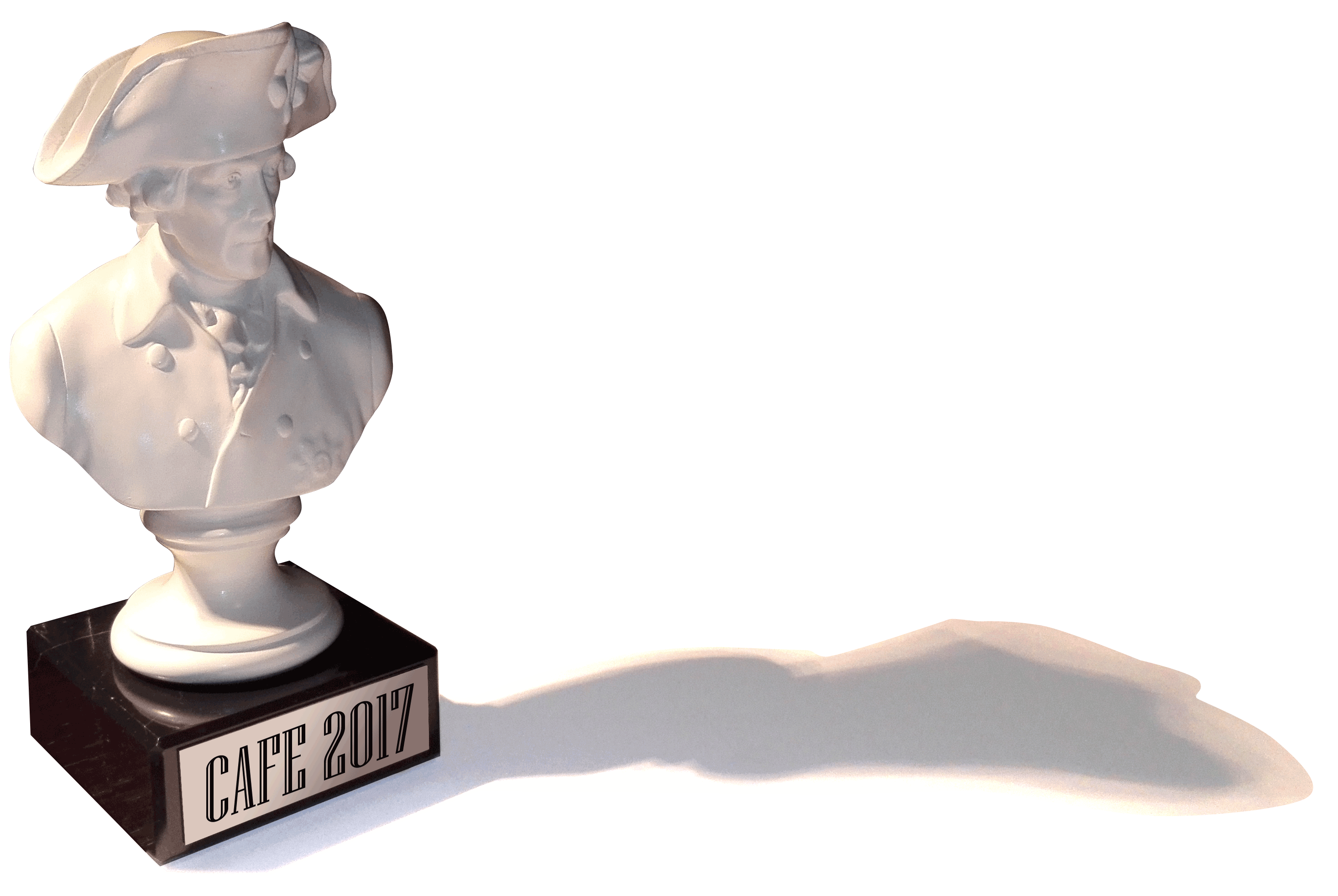
RESULTS
In this section we will publish information regarding the development of the championship, statistics, photos and comments on the games.
CAFE'17 CHAMPION
Richard Sivel (GER) playing as Sweden
CAFE'17 finalists
Guy Atkinson (SPA) playing as Prussia
Bjorn von Knorring (SWE) playing as Austria
Maurice de Wijs (NED) playing as France

Prize-giving, (from left to right) Guy Atkinson (Best Classified), Jose Luis Bonilla (Organizer), Richard Sivel (CAFE'17 Champion)
1ST ROUND
2ND ROUND
3th ROUND
4th ROUND
final(1/2)
final(2/2)
Statistics
The 17 games played during the CAFE'17 are too small a sample to draw definitive conclusions. Nevertheless, results are consistent with the pattern observed in previous World Championships in Berlin. Friedrich leads the score with around 40% of the victories, followed by Maria Theresia with about 30%. Elisabeth and Pompadour are behind with about 15% of the victories each. The only anomaly registered during the CAFE'17 was that all of Elisabeth's victories (3 in total) where achieved with Sweden.
Trying to explain this Prussian predominance, I was told during the CAFE'17 that the participants where better at playing Friedrich than any other role. I prefer to turn this reasoning around and say that during the Spanish Championship many of the participants were quite awful when playing any of the allied roles. The way I saw it during the event, lousy Prussian play got away clean because allied play was on average far more deficient. Having 1 or 2 real good allied players in the game isn't going to help if either Russia or (especially) Austria are miserably led, which allows Prussia to concentrate resources where the real danger lies without any real stress.
Why are the allies played so badly? Since Friedrich was published in 2004 there has been a race of strategies between Prussia and the allies,a race at which Friedrich has the lead and the allies follow him in developing counterstrategies. It is possible that what we see now is a transition period between a balance of strategies and the next one, characterised by a Prussian dominance.
Another explanation I have been given is that the results of the several championships are slanted due to the scoring system, which essentially rewards the allies for conquering objectives even if they lose. This system favours a conservative allied strategy, centered around scoring 8 or 9 points for the tournament, and shying away from any risk to those points achieved even if it would bring a Prussian defeat. In other words, the allies play it safe.
Whatever the reason, the discussion is ongoing, and we may need further data to reach a definitve conclusion.





